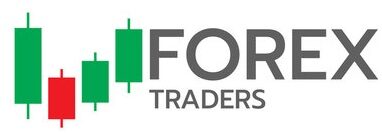
With the emergence of digital currencies like Bitcoin, investors seeking to diversify their investment portfolios beyond traditional equities, bonds, and real estate now have new options. Traders can use espresso online trading platform to buy and sell cryptocurrencies easily. The bitcoin market is dangerous and incredibly unpredictable, though. Forex trading is another well-liked substitute that entails swapping one national currency for another. Both cryptocurrencies and forex provide traders opportunities to profit from price fluctuations, however, there are significant distinctions between them regarding risk, oversight, and functionality. To help determine which market might be a better fit depending on a risk tolerance, and goals, along with preferred trading approach, this article aims to outline a comparative overview of a cryptocurrencies versus Forex trading.
Cryptocurrency: What is it?
Cryptocurrency is revolutionary digital asset that uses encryption to guarantee transactions, control the generation of new coins, as well as free the financial system from the control of central banks. Spearheading this revolution is Bitcoin, born in 2009 from the enigmatic mind of Satoshi Nakamoto. These digital gems are fueled by blockchain wizardry, a public ledger that thrives on decentralization. Brave miners, armed with cryptographic superpowers, validate and immortalize transactions, reaping rewards in fresh crypto tokens.
Cryptos are the speedsters of global finance, zipping across borders at a fraction of the cost compared to traditional methods. But beware, the crypto seas can be tempestuous, with prices skyrocketing and plunging, and some coins lurking in the shadows for illicit deeds. In a world where innovation meets decentralization, cryptocurrencies offer financial freedom, yet navigate these waters with caution, for adventure comes with volatility and intrigue.
Forex Trading: What is it?
Forex trading, short for foreign exchange, is a global financial spectacle where currencies take centre stage. It’s a thrilling arena where traders buy and sell currencies, aiming to capitalize on fluctuations in exchange rates. Consider it as a never-ending dance with dollars, euros, yen, and other currencies, where each step offers the possibility to make money. In this volatile market, currencies fluctuate sharply in response to economic data, geopolitical developments, and investor mood. Traders, armed with charts and analysis, seize opportunities to buy low and sell high, or vice versa.
Forex is the ultimate stage for those seeking financial adventure. It’s open 24/5, ensuring that the excitement never sleeps. But beware, with great potential for profit comes risk. It’s a place where strategy, knowledge, and discipline rule. In the world of Forex, fortunes are won and lost daily. So, what is Forex trading? It’s your ticket to the thrilling world of currency exchange, where every trade is a chance to shine
Regulation and Risk
A key difference between cryptocurrencies and Forex is regulation. The Forex market is highly regulated by central banks and financial authorities in participating countries since it involves trading national fiat currencies. Major brokers are required to be licensed and follow strict rules regarding leverage limits, capital requirements, trade execution, and client funds segregation. Strict regulations are in place to help protect investors and reduce risk. Cryptocurrencies, on the other hand, run independently of a central authority over decentralized networks. While some regulation is emerging, overall the crypto market remains a regulatory wild west with frequent scams, hacks and wash trading.
There are also concerns about its potential role in money laundering and illicit activity given the anonymity of transactions. The lack of strong regulation in the cryptocurrency market leaves individual investors much more vulnerable to fraud and exposed to potential losses. From a risk perspective, cryptocurrencies are considered far riskier investments than Forex trading major currency pairs. Crypto prices are far more volatile with double-digit intraday swings not uncommon. New coins frequently crash and burn. Forex trading on margin also involves leverage risk, but brokers impose tighter controls and most traders focus on less volatile major currency pairs. The highly speculative nature of the cryptocurrency market makes predicting prices very difficult and increases investment risk substantially.
Trading Styles and Tools
Cryptocurrency and Forex each attract certain trader personalities and styles. Crypto trading tends to draw more speculative traders hoping to profit from extreme volatility or support of new projects. Fundamental analysis plays little role since cryptocurrencies lack traditional valuation metrics. Technical analysis of price charts is more common for finding entry and exit points.
Forex attracts position traders who analyze interest rates, inflation, GDP numbers and other economic indicators to gain an edge in predicting currency direction over weeks or months. It also appeals to day traders who scalp pips during active trading sessions. A wide range of tools are available like economic calendars, order flow analytics and automated trading robots. Major broker platforms provide advanced charting, order types and risk management features.
Fees and Liquidity
Transaction fees on cryptocurrency exchanges can be significant, especially during periods of high network usage. Ethereum gas fees also spike during network congestion, sometimes reaching levels that make small transactions uneconomical. In contrast, most Forex brokers offer low or no commissions on standard currency pairs, providing a clear cost advantage over cryptocurrency exchanges which take a percentage of each trade as a fee. Liquidity is also far deeper in the Forex market, which sees over 5 trillion in daily volume. This massive amount of liquidity makes it relatively easy to enter and exit positions without moving the market significantly.
Cryptocurrency exchanges can experience serious liquidity issues, price slippage or even flash crashes during periods of high volatility as buy and sell orders dry up quickly due to the much smaller pool of active traders and funds. This illiquidity can trap traders’ funds as sale prices plunge. Taxes are another consideration. Cryptocurrency trades and holdings may be subject to capital gains tax depending on jurisdiction. Taxes on Forex are usually limited to income from actual trading profits. Keeping good records is especially important for cryptocurrency investors and traders due to the tax implications.
Conclusion
Both cryptocurrency and Forex espresso currency trading for beginners offer opportunities for speculators and investors to profit from price fluctuations in digital assets and national currencies. However, cryptocurrencies like Bitcoin entail significantly greater risk due to their extreme volatility and lack of regulation compared to trading major currency pairs in the Forex market. Forex also benefits from lower fees, deeper liquidity, and the availability of advanced tools. For traders seeking short-term profits from volatility, cryptocurrency markets may be attractive options. But those wanting more stability and oversight are generally better off with Forex.





